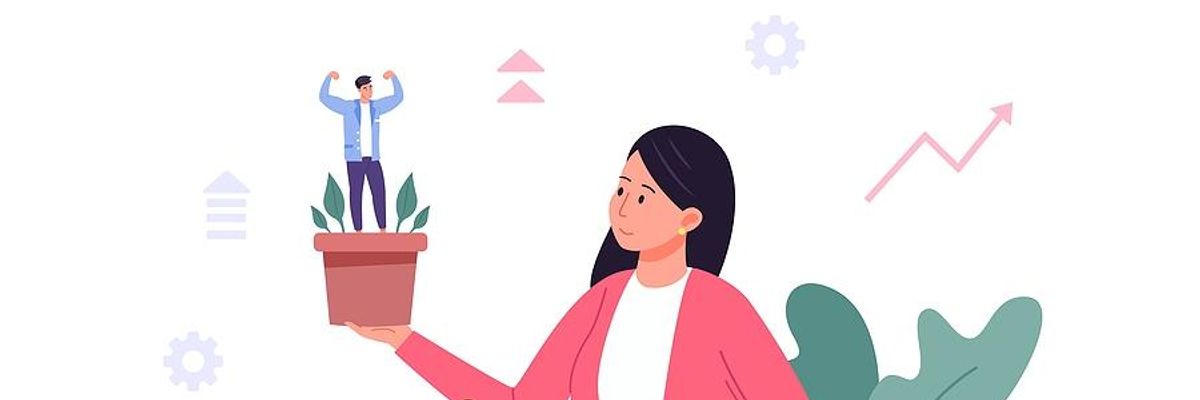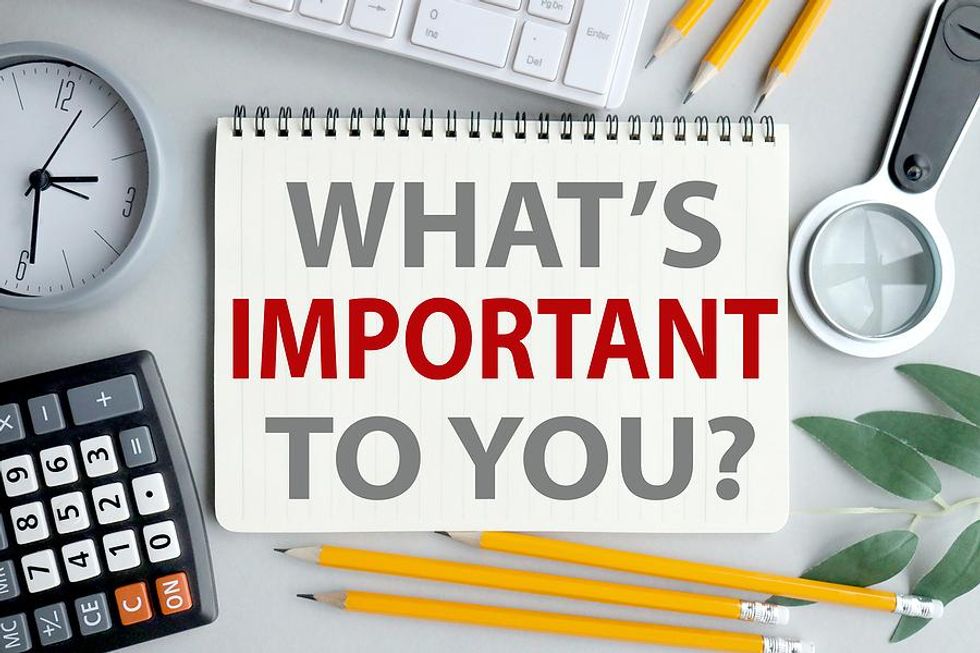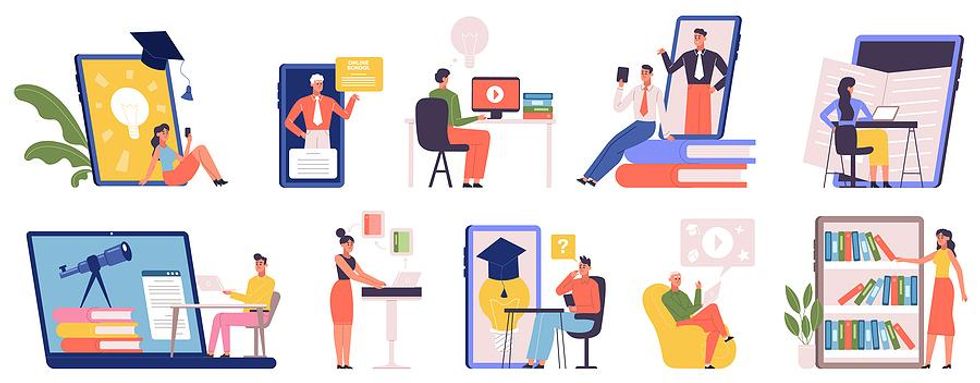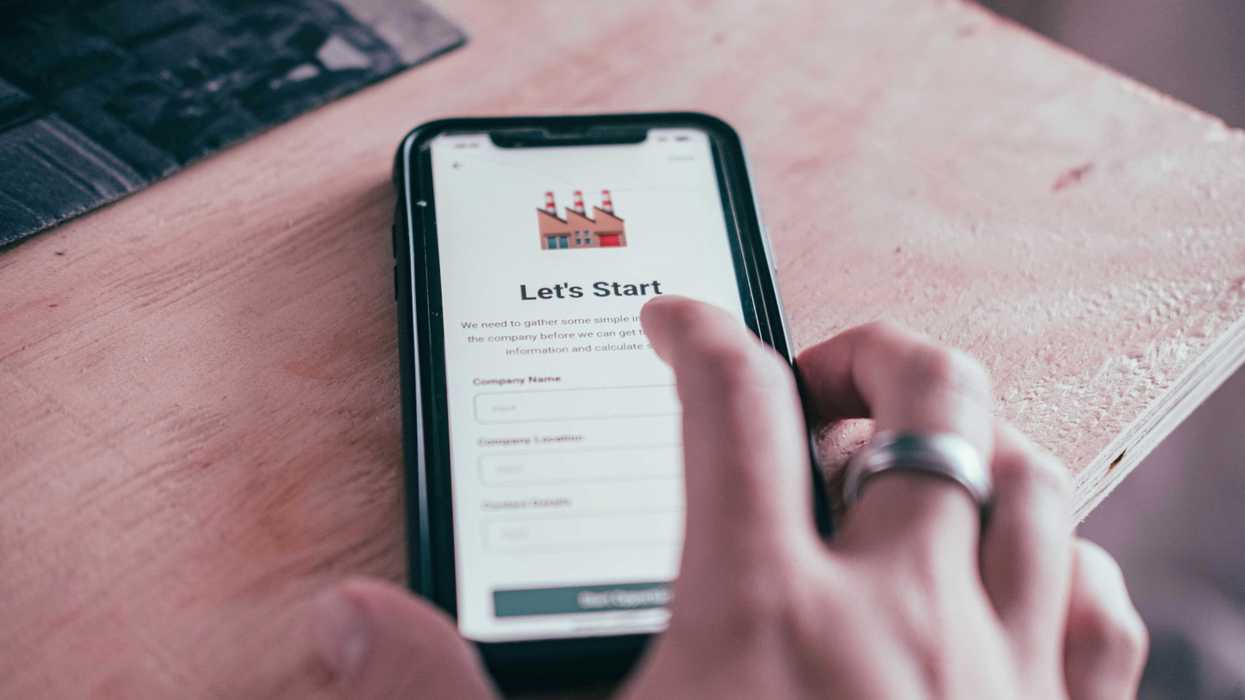
One portion of an employee’s personal development is work-related, but there is more. When you think of an employee’s personal development do you think of the skills for them to keep current, get a promotion, or transfer to another department? Improving core skills such as analytical abilities, critical thinking, and/or decision making? Skills to take on a leadership role and manage staff? Obtaining higher credentials?
Assuming so, organizational leaders should:
1. Make sure you understand what employees do and how it aligns with the company’s goals
2. Let employees do the job you hired them to do (leveraging their strengths and interests); nobody likes to be micromanaged
3. Challenge employees with stretch goals
4. Encourage employees to learn new things and give them the tools they need to learn:
- Read books, magazines, trade journals, newsletters, blogs
- Watch online videos, listen to podcasts
- Take courses (in-person, online) and attend webinars, workshops, conferences
- Company-provided training - Microsoft Office, application-specific courses
- Hard skills such as an SQL class, foreign language
- Effective communication skills - writing classes or speaking training (e.g., Toastmasters)
- Other soft skills - time management, problem solving
- Learning platforms - LinkedIn Learning, MasterClass
- Leadership-related training
- Supervisor skills, management trainee program
- Some will want to manage people, but others won’t and that’s ok
- Professional license, certification (e.g., PMP, CISSP), college degree
- Don’t forget to support CPE (continuing professional education) requirements
- Groups - professional associations, networking groups, etc.
- Other - internships, volunteer opportunities
These are great work-related considerations, but there is more. There is a saying by Confucius: “I want you to be everything that’s you, deep at the center of your being.” Do you encourage employees’ personal development (and the key word is personal) to be the best version of themself? Have you asked them what is important to them? If it’s important to them, it should be important to you too.
Developing A Growth Mindset

Bigstock
Personal development is lifelong learning and it’s never too late to start. Encourage employees to develop a growth mindset and continue learning while working for the company. This includes opportunities to:
1. Enhance their quality of life such as health/fitness, self-care, self-confidence
2. Self-improvement to fully develop their character, capabilities, and potential- Develop a reading habit
- Personal finances, personal creativity, or other personal-related learnings
- “Work-related” skills listed above even if they aren’t relevant to their current role
- Some organizations (such as Amazon, Chipotle, and Starbucks) have free or practically free college programs for front-line employees, which removes financial barriers
3. Realize their dream - maybe to become an entrepreneur and start their own business
How To Create A Custom Personal Development Plan For Employees

Bigstock
Has your organization recognized that they need to think differently about developing employees? They should work together with the employee to create a custom personal development plan (PDP) based on what the employee is interested in (including both work and personal aspects). Four basic steps are:
1. Perform a self-assessment
2. Establish and prioritize goals (both short and long term) breaking up the goals into manageable tasks
3. Create a step-by-step plan identifying required resources, timelines, etc.
- Identify objectives to reach the goals as well as strategies to achieve the tasks
- Identify any weaknesses, development needs, barriers
4. Measure progress
- Reward and celebrate accomplishments
- Be prepared for setbacks - adjust and course correct
As a leader, be available when employees want to talk with you as well as periodically check in with them to ensure they have a good work-life balance. Both of these could be good coaching/mentoring opportunities.
When there is a comprehensive personal development plan, the employee is more likely to be and stay excited about what’s next (and stay with the organization longer). For more information about personal development, follow me on LinkedIn!
- 5 Professional Development Tips To Up Your Career Game ›
- How To Answer “What’s Your Greatest Weakness?” ›
- 5 Professional Development Tips For College Students ›
- The Importance Of Training For Effective Operations - Work It Daily ›
- Personal Development Goals Leading To Lifelong Learning - Work It Daily ›

 Bigstock
Bigstock Bigstock
Bigstock Bigstock
Bigstock


